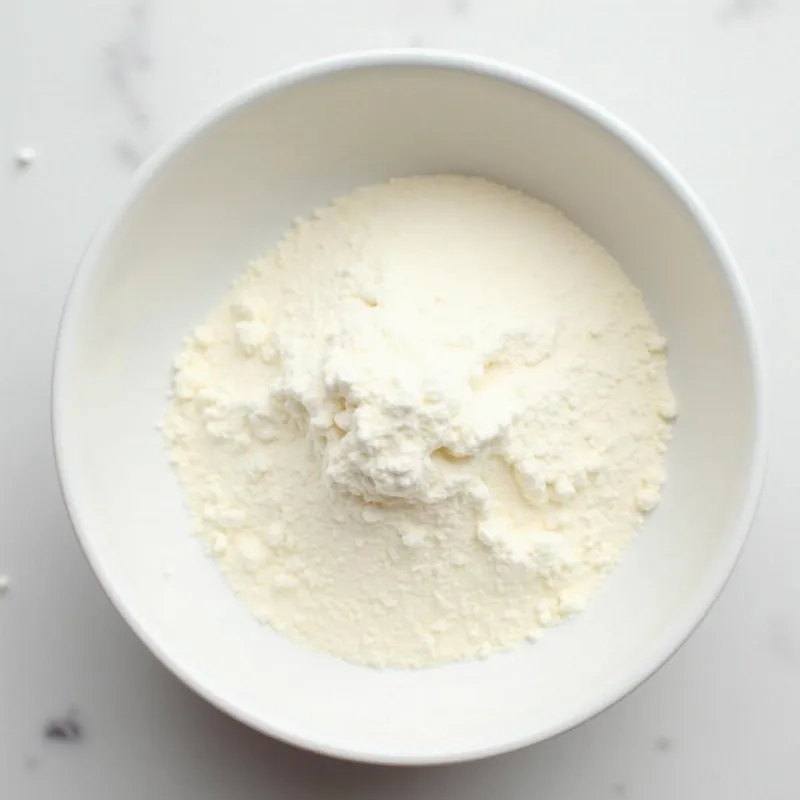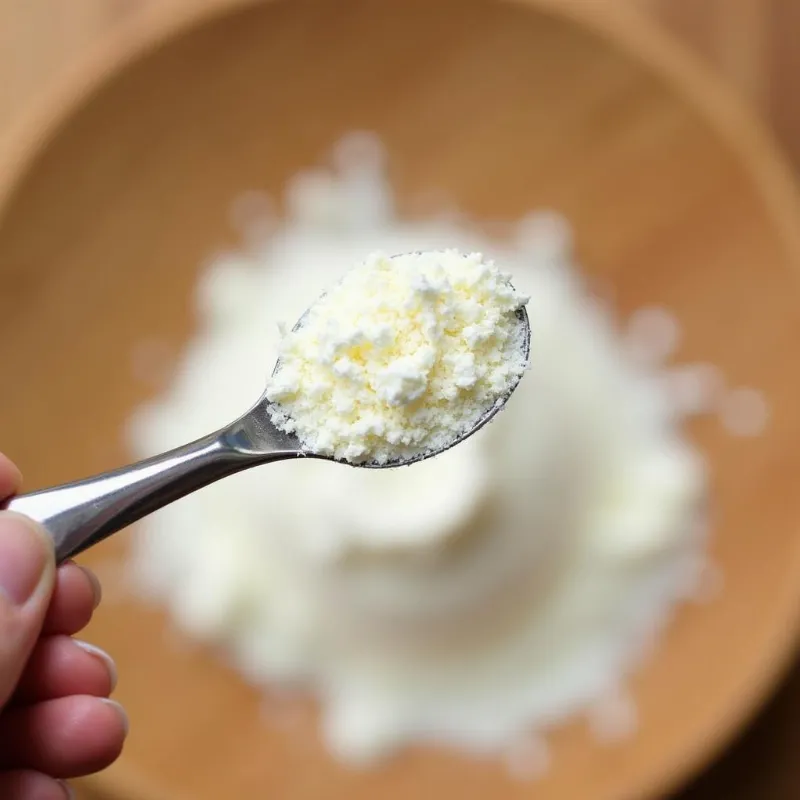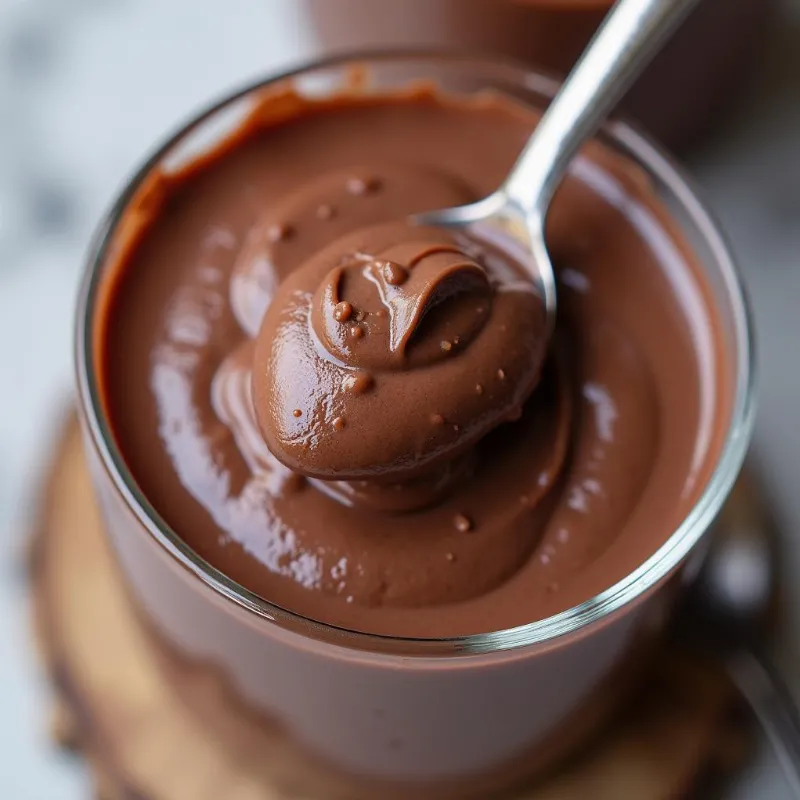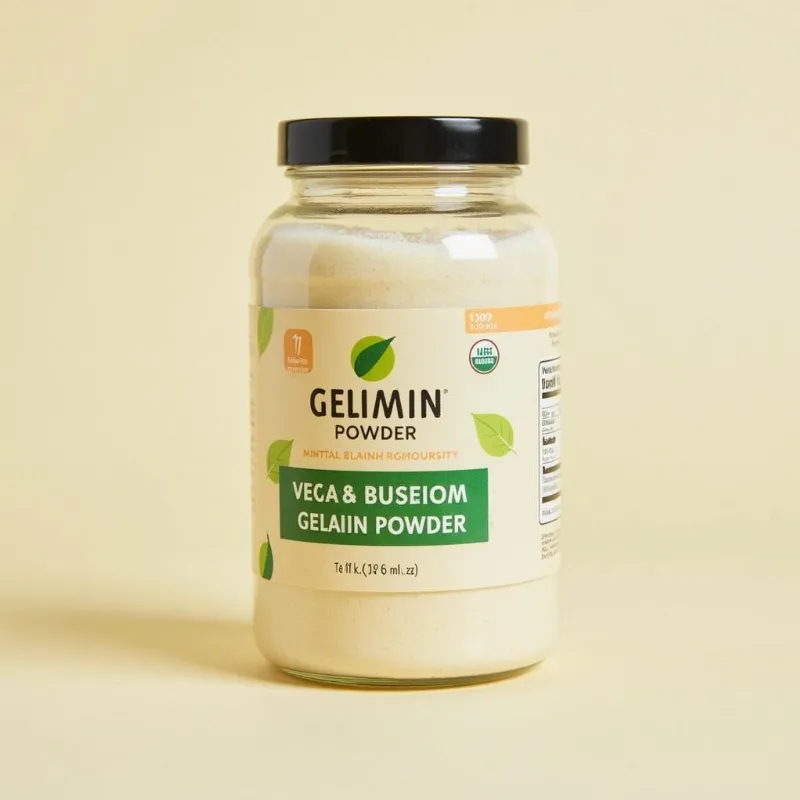Gelatin—the jiggly, versatile ingredient used in countless desserts and savory dishes—presents a challenge for those embracing a vegan lifestyle. But fear not, aspiring vegan chefs! This comprehensive guide delves into the world of vegan gelatin substitutes, empowering you to create delightful plant-based versions of your favorite gelatin-based treats.
Understanding Gelatin and Its Vegan Alternatives
Traditional gelatin is derived from collagen extracted from animal bones, skin, and connective tissues. This makes it unsuitable for vegans and those seeking cruelty-free options. Thankfully, several plant-based alternatives offer similar gelling properties, allowing you to enjoy the same textures and consistencies without compromising your ethics.
Exploring Popular Vegan Gelatin Substitutes
1. Agar-Agar: The Seaweed-Based Wonder
 Agar-agar powder in a bowl
Agar-agar powder in a bowl
Agar-agar, a popular vegan gelatin substitute, is derived from red algae. This flavorless gelling agent comes in powder or flake form and boasts a higher gelling strength compared to traditional gelatin.
Using Agar-Agar:
- Dissolve in Liquid: Agar-agar needs to be dissolved in a liquid, like water or plant-based milk, by bringing it to a simmer.
- Setting Time: Agar-agar sets quicker than gelatin, achieving a firm texture even at room temperature.
Tips for Agar-Agar Success:
- Start with small amounts, as a little goes a long way.
- Avoid using acidic ingredients like citrus juice directly with agar-agar, as they can hinder its gelling ability.
2. Kappa Carrageenan: A Versatile Thickening and Gelling Agent
 Kappa carrageenan powder in a spoon
Kappa carrageenan powder in a spoon
Kappa carrageenan, another seaweed-derived option, is a versatile vegan substitute for gelatin. It creates a firm, brittle gel that holds its shape well, making it ideal for jellies, puddings, and even vegan cheese.
Using Kappa Carrageenan:
- Dissolve in Cold Liquid: Kappa carrageenan dissolves readily in cold liquids, simplifying the preparation process.
- Heat Activation: It requires heating to activate its gelling properties.
Tips for Kappa Carrageenan:
- Use it in small quantities, as it’s potent.
- Blend it with other ingredients before adding it to the liquid to prevent clumping.
3. Iota Carrageenan: Creating Creamy Textures
 Vegan chocolate pudding in a glass with a spoon
Vegan chocolate pudding in a glass with a spoon
Iota carrageenan, extracted from red seaweed, is known for producing elastic, heat-reversible gels. This makes it perfect for applications where a creamy texture is desired, like vegan yogurt, ice cream, and sauces.
Using Iota Carrageenan:
- Heat for Activation: Similar to kappa carrageenan, iota carrageenan needs heat to activate.
- Texture Control: The texture can be adjusted by varying the concentration used.
4. Vegan Gelatin Powders: Convenient and Ready-to-Use
 Vegan gelatin powder in a jar with a spoon
Vegan gelatin powder in a jar with a spoon
For those seeking convenience, pre-mixed vegan gelatin powders are readily available. These blends typically contain a combination of plant-based gelling agents, along with sweeteners and flavorings, making them easy to use in various recipes.
Using Vegan Gelatin Powders:
- Follow Package Instructions: Each brand may have specific instructions, so it’s essential to check the packaging.
Tips for Choosing the Right Vegan Gelatin Substitute
- Desired Texture: Consider the final texture you want to achieve. Agar-agar yields firm gels, kappa carrageenan creates brittle textures, iota carrageenan results in creamy consistencies, while vegan gelatin powders offer varying results depending on the blend.
- Application: The specific recipe also plays a role. Agar-agar is great for fruit jellies and vegan marshmallows, while iota carrageenan shines in creamy desserts.
- Availability: Check the availability of different substitutes in your local stores or online.
Frequently Asked Questions about Vegan Gelatin Substitutes
1. Where can I find vegan gelatin substitutes?
You can find vegan gelatin substitutes in the baking aisle of well-stocked supermarkets, health food stores, or online retailers specializing in vegan products.
2. Can I use these substitutes interchangeably with gelatin?
While they offer gelling properties, they might behave differently. It’s best to follow recipes specifically designed for each substitute for optimal results.
3. Do vegan gelatin substitutes have any health benefits?
Some substitutes, like agar-agar, are rich in fiber and minerals. However, they should be consumed as part of a balanced diet.
4. Can I make my own vegan gelatin at home?
While it’s possible to extract gelling agents from certain fruits and vegetables at home, the process can be time-consuming and may not yield consistent results.
5. Are vegan gelatin substitutes more expensive than traditional gelatin?
The cost can vary depending on the type and brand. Some substitutes, like agar-agar, can be more affordable than pre-mixed vegan gelatin powders.
Embrace the World of Vegan Gelling
With this guide, you’re well-equipped to explore the exciting world of vegan gelatin substitutes! From jiggly jellies to creamy puddings, the possibilities are endless. Embrace these plant-based alternatives and enjoy the satisfaction of creating delicious and ethical vegan treats.
